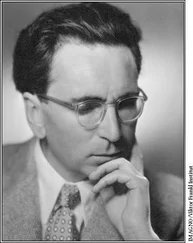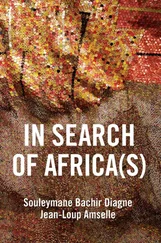For the reasons mentioned above, I should clarify that I, Gustav Links—a man of flesh and blood just like you—am the author of these words. But who am I, really? You can easily see this simply by glancing at the front cover of this book. But what else do you know? Forget about me for a moment and look at the cover once again. For one thing, this volume was finished—not written but finished—in 1989. And what else do you know, aside from the little that I have already told you: that I participated in the failed plot to overthrow Hitler on July 20, 1944, that I was arrested and tried, and that a twist of fatum finally intervened and saved my life?
Nevertheless, I hope you don’t think I would be so presumptuous as to subject you to the story of my life. This has never been my intention, and as many others before me have said, I simply hope to serve as a guide who will walk you through this story: I will be a Serenus, an old, deaf Virgil who promises, from this moment on, to accompany and guide the reader. As the result of an act of luck, of the inevitable, of history, of chance, of God—call it what you like—I was forced to participate in the events I am about to describe. But I can assure you that my only goal is to gain your trust. Because of this, there is no way I could possibly trick you into thinking that I don’t exist and that I haven’t participated in the transcendental events I am about to describe.
LAW II: All narrators offer one, singular truth
I wonder if you have ever heard of a man named Erwin Schrödinger. Aside from being the celebrated physicist who discovered wave mechanics, he was also an inspired soul and one of the protagonists of this drama, a kind of Don Juan in the body of a wizened, old professor (of course, only now do I allow myself to describe him with such familiarity; when I first met him I never would have dared). He used to wear the most endearing pair of little round eyeglasses, and was forever surrounded by beautiful women … but that is beside the point. I only mention these details as an afterthought, out of chronological order, and only because I must. Although the notion of subjective truth certainly occurred to the Sophists in ancient Greece and to Henry James in the nineteenth century, it was our good friend Erwin who established the scientific foundations of such a theory, and his theory is one I find particularly satisfying. I won’t go into detail, but I will point out one of its more unexpected consequences: I am what I see. What is this statement trying to communicate? A platitude: that truth is relative. Every observer, whether contemplating an electron or an entire universe in motion, unwittingly completes what Schrödinger called a “wave packet” released by all objects under observation. When subject and object make contact, what emerges is a jumbled mixture of the two, which then leads us to the none-too-surprising conclusion that, in practice, each mind is a world unto itself.
The ramifications of the previous statement must seem as transparent as a drop of morning dew; in fact, it’s the oldest excuse in the book. The truth, it claims, is my truth, and that is that. The quantum wave functions that I complete with my act of observation are unique and immutable—and this is supported by a litany of theories I don’t particularly wish to elaborate on right now (the uncertainty principle, the theory of complementarity, the exclusion principle, among others). In essence, they state that no one has the authority to declare his truth as superior to that of someone else. I am telling you this, I repeat, as a way of laying my cards out on the table. If this comes across as unbearable, deceitful, or even manipulative, please know that it is not my intention but rather the consequence of a physical law I cannot help but obey. As such, I feel no need to apologize for this.
LAW III: All narrators possess a motive for narrating
The problem with axioms is that they always seem so tediously obvious that many people think they could easily be mathematicians themselves. It’s inevitable. But to recapitulate: If we agree with Laws I and II, that all texts must have an author, and that said author possesses a single, exclusive truth, then the next declaration will seem even more tedious. It states that if things do not appear from nowhere, it is because someone has specifically intended for it to be that way. I realize that this axiom does not apply to the world itself—at least, it seems highly unlikely that we will soon understand why someone chose to create the world as we know it—but I am not responsible for the uncertainties that exist outside these pages. We must banish the terrible theological temptation by which literary critics and scientists declare ordinary texts to be modern-day version of the Bible. No author is God, or anything like God—believe me—and no single page comes close to being even the worst imitation of the Tablets of the Law or the Gospel. And obviously, men of flesh and blood have little in common with the men we read of in books. Our metaphorical tendencies can sometimes get us into very big trouble. Here, then, is the real mystery of all mysteries: Unlike what occurs in the natural universe, books are always written with a motive, and these motives can often be quite petty indeed.
Don’t assume, however, that it will be so easy to discern my motives. Scientific research, the kind that I performed for years—the kind that you will soon undertake—is much more complicated than baking a cake from an old family recipe. I only wish it were that simple! So don’t get unduly excited: I have no intention of revealing my reasons in one fell swoop. I may be aware of them myself, but even I don’t know if I have fully made sense of them. With a bit of patience, perhaps you will be the ones to disentangle them. Remember what Schrödinger said: For a true act of recognition to occur, an interaction must take place between observer and observed, and now I find myself in the latter (and somewhat less comfortable) category. I hope that you enjoy studying these incidents and hypothesizing upon their possible causes—a task that I have realized so many times in the past, though under very different conditions. In the world of science, this is the key to success. I could make your work easier by saying that I shall present my version of the facts and my conclusions to the world, that I will tell my own, personal truth. But at this stage of my life—I am over eighty—I am still not fully convinced by my own reasons. If you had asked me forty or even twenty years ago, I wouldn’t have wasted a second in subscribing to the above-mentioned theories. No, now it is different: I see how my old, sinister friend lies in wait for me. I see how every breath requires a superhuman effort, and I see how the most trivial of human activities for you—eating, bathing, defecating—have become nothing less than minor miracles for me. And so I don’t quite know if my beliefs have remained the same, either. If you are willing to accept the challenge—how pompous; let’s call it a game instead—you can be the one to decide whether I am right or wrong.
When Lieutenant Francis P. Bacon, former agent of the OSS, the Office of Strategic Services, and scientific adviser to the U.S. forces stationed in Germany, arrived at the Nuremberg train station at 8 A.M .on October 15, 1946, nobody was there to greet him. Gunther Sadel, officer of the counterintelligence unit attached to Brigadier General Leroy H. Watson, chief of the North American forces, was to have picked up Bacon and taken him to the gallows where the Nazi war criminals were to be executed. But when Bacon alighted from the train, Sadel was nowhere to be found. The train station was virtually empty.
Читать дальше












